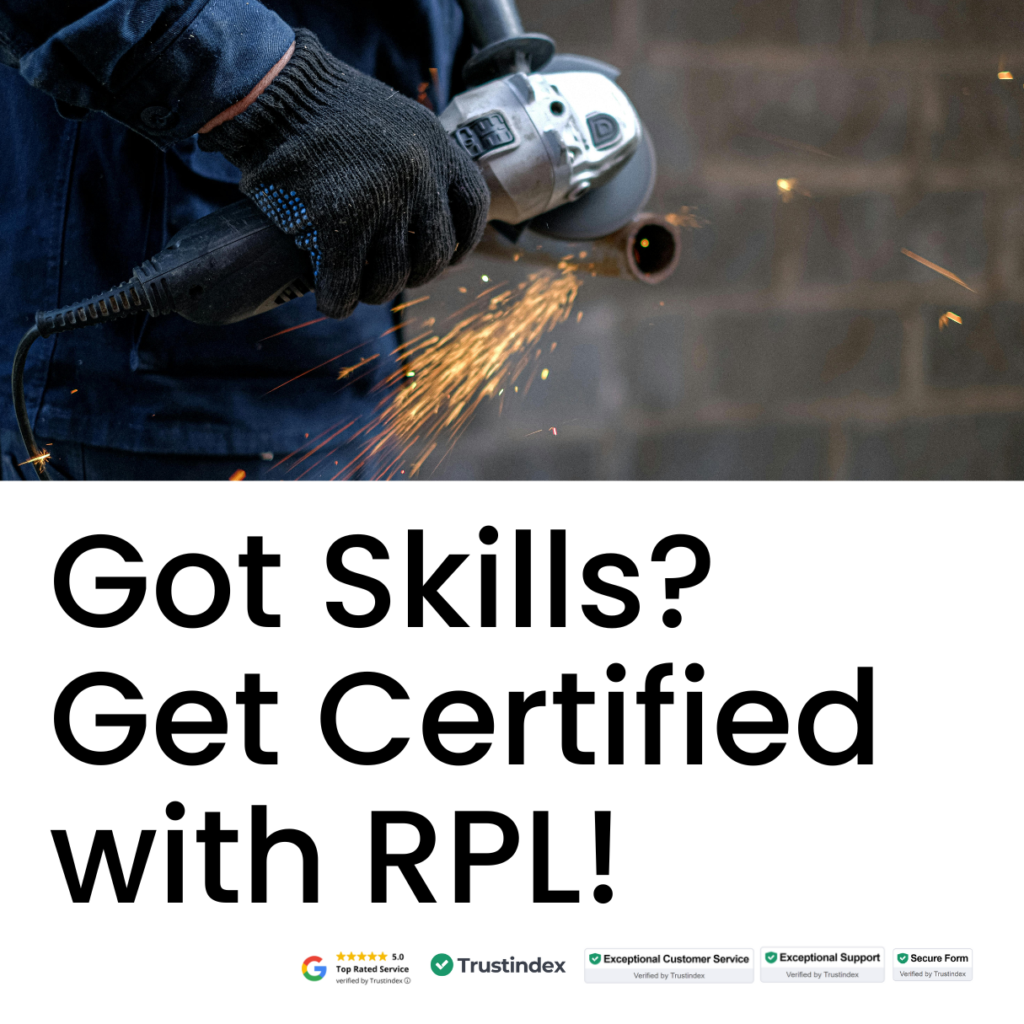Recognition of Prior Learning (RPL) offers a streamlined pathway to gaining nationally recognised qualifications based on your existing work experience and skills. The process allows you to fast-track your career without the need for traditional classroom study. Whether you’re looking to qualify in your current industry or change fields, RPL is the key to achieving your career goals quickly and efficiently.
At STUDYIN, we’ve designed a clear, four-step RPL process to help you navigate your journey seamlessly. This comprehensive guide breaks down each step, providing valuable insights into how you can leverage your existing knowledge to gain a qualification that reflects your true professional value.
By the end of this guide, you’ll not only have a full understanding of the RPL process but also practical tips and resources to ensure your application is well-supported, clear, and highly effective.
Step 1: Free RPL Skill Assessment
Start Your RPL Journey with a 40-Second Skills Check
The Free RPL Skill Assessment is the first and most critical step in your RPL journey. This quick, 40-second skills check is designed to assess your current skills and determine the qualifications that align best with your experience. It’s a fast, straightforward way to start your RPL application without any commitment.
Why It Matters:
This initial assessment serves as a foundation for the rest of your RPL process. During this stage, our RPL specialists will get in touch with you to discuss your career goals, the qualifications you’re aiming for, and the skills you’ve accumulated over your career. By clearly identifying the most relevant qualifications for your profile, we ensure you are on the right path from the very beginning. You’ll leave this step with a clear understanding of your options and the next actions to take.
What Happens Next?
After the skills check, you’ll have a tailored discussion with an RPL specialist who will guide you on which qualifications match your professional experience. This conversation ensures that you are on the right track and prepares you for the next phase of your RPL journey.
Step 2: Build Your Experience Portfolio
Document Your Professional Achievements and Skills
Once we understand your career goals and the desired qualification, the next step is to Build Your Experience Portfolio. This is a critical part of the process where we help you organise and document all your professional achievements, training, and work experience.
Essential Resources:
- Qualification-Specific Document Checklist: To help you stay on track, we provide a qualification-specific document checklist that guides you through the process of gathering all necessary documents. This ensures that you don’t miss any key evidence and makes sure your portfolio is comprehensive and aligned with the RTO’s requirements.
Important Elements to Include:
- Resume: A well-crafted resume is the foundation of your portfolio. It should reflect your full professional experience, highlighting relevant job roles, responsibilities, and achievements. Make sure it aligns with the qualification you’re seeking. For detailed tips on writing a standout resume for your RPL application, check out our guide on writing a great resume for your RPL application.
- Reference Letters: Strong reference letters provide third-party validation of your skills. These letters should be specific, mentioning the tasks you performed and the results you achieved. For more guidance on crafting the perfect reference letter, visit our Winning Reference Letter for Your RPL Application.
- Evidence: Evidence is critical in the RPL process. This could include work samples, job records, performance reviews, and training certificates. Each piece of evidence should demonstrate how you meet the competencies for the qualification. Be sure to check our Mastering RPL Evidence: Types, Rules, and Submission Tips for detailed instructions on how to collect and organise your evidence effectively.
Step 3: Review By The RTO
Validate Your Expertise with RTO Experts
Once your application form and portfolio are ready, we will conduct a preliminary review of your documents. This initial check is designed to ensure that your portfolio is well-organised, complete, and fully aligned with the qualification you’re seeking. After our internal review, we will submit your application and portfolio to the RTO for the next steps.
The RTO will assign an assessor to your case, who will conduct a comprehensive review of your work portfolio to ensure that your documented skills and experience meet the required standards for the qualification. If any additional evidence or clarification is needed, the assessor may reach out for further documentation or training suggestions.
What Happens During the Review:
Communication: If there are any gaps or concerns, the assessor will reach out for clarification or further documentation. This ensures that your application is thoroughly reviewed and complete.
Assessment Process: An assessor from the RTO will review the documents you’ve submitted. They will assess whether your work experience and skills align with the required competencies for the qualification you’re pursuing.
Additional Evidence: In some cases, the RTO assessor may request additional evidence or may suggest supplementary training to ensure you fully meet the qualification standards.
Step 4: Achieve Your Certification
Celebrate Your Success and Receive Your Qualification
Once the RTO has verified your skills and experience, it’s time to achieve your certification. After all necessary documentation is reviewed, you will receive a nationally recognised qualification that reflects your expertise and professional growth.
What’s Next:
- Unlock New Career Opportunities: Having a nationally recognised qualification opens new doors for career advancement, salary increases, and further professional development.
- Celebrate Your Achievements: Earning a qualification through RPL is a testament to your hard work and experience. It validates your skills and sets you apart in the competitive job market.
Additional Insights: Why STUDY IN Pty Ltd is Your Trusted Partner
At STUDYIN, we understand the value of your professional experience, and we’re committed to helping you turn that experience into a formal qualification. Our process is designed to be fast, easy, and cost-effective, ensuring you achieve your career goals without the need for additional classroom study.
Final Thoughts:
The STUDYIN is designed to be efficient, empowering, and accessible. By following these four simple steps—starting with the Free RPL Skill Assessment, building your Experience Portfolio, undergoing Review by the RTO, and ultimately receiving your Certification—you are setting yourself up for a brighter future.
Each stage is crafted to ensure that your professional experience is recognised and validated, helping you achieve the qualification that reflects your true capabilities. Whether you’re looking to advance in your current role or pivot to a new career, RPL provides the pathway to formalising your skills without the hassle of traditional classroom learning.
Ready to Start Your RPL Journey?
If you’re ready to take the next step in your career, complete our Free 40-Second RPL Skill Assessment today. This quick assessment will help you understand which qualifications align with your skills and experience, so you can start your journey toward gaining a nationally recognised qualification with confidence.
All qualifications are awarded by our trusted partner RTOs.










